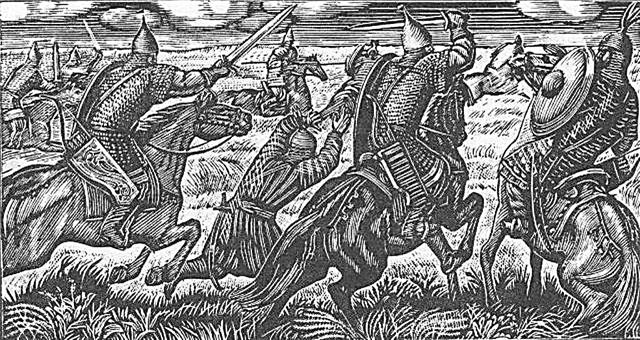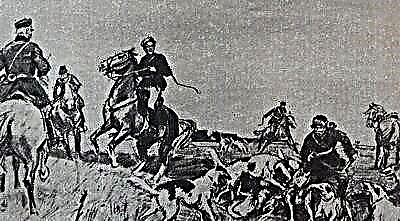The Tang emperor Gao-zong ordered aristocrats to engage in floriculture, having purchased seedlings without fail in Luoyang. Minister Pei Xing-chian sends his beautiful and talented son Shao-jun there. Passing by one garden, a young man sees through a fence a beauty; this is Li Qian-jin, daughter of the disgraced dignitary Li Shi-jie. Love flares up. With the help of servants, young people exchange poetic messages and make an appointment that night.
Qian-jin with the maid waits for the onset of darkness, anticipating the joy of love. Here is a young man; he wraps the sweetheart in a hug, but the mother breaks the happiness of the lovers. At first she threatens them with all sorts of punishments, but in the end she allows them to escape.
Seven years living Qian-jin with her husband; she bore him a son and daughter, but is still hiding from her father-in-law. On the day of the commemoration of the deceased, Shao-jun goes with his mother to the cemetery, while the minister remains at home unwell. Walking in the garden, he meets first the children, then their mother. The efforts of the servant to shield the young master do not help. The angry old man demands that his son divorce the “walking girl” and send her home. The son obeys, daring only to conduct his wife under the pretext of a trip to the exam.
Shao-jun passed the exams and was appointed ruler of Luoyang County. He appears to his wife (she was orphaned and lives with servants on the estate). But Qian-jin refuses to consider him a husband. The reference to parental will does not convince her. The apologies of the father-in-law did not soften the woman’s heart (he explains that he did not know about her origin). Only the plaintive requests of children help restore peace and love between spouses.


 Glass of water
Glass of water








